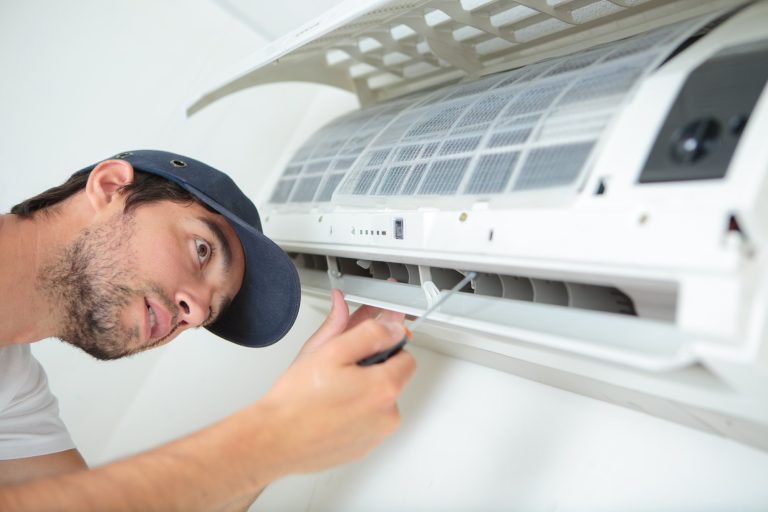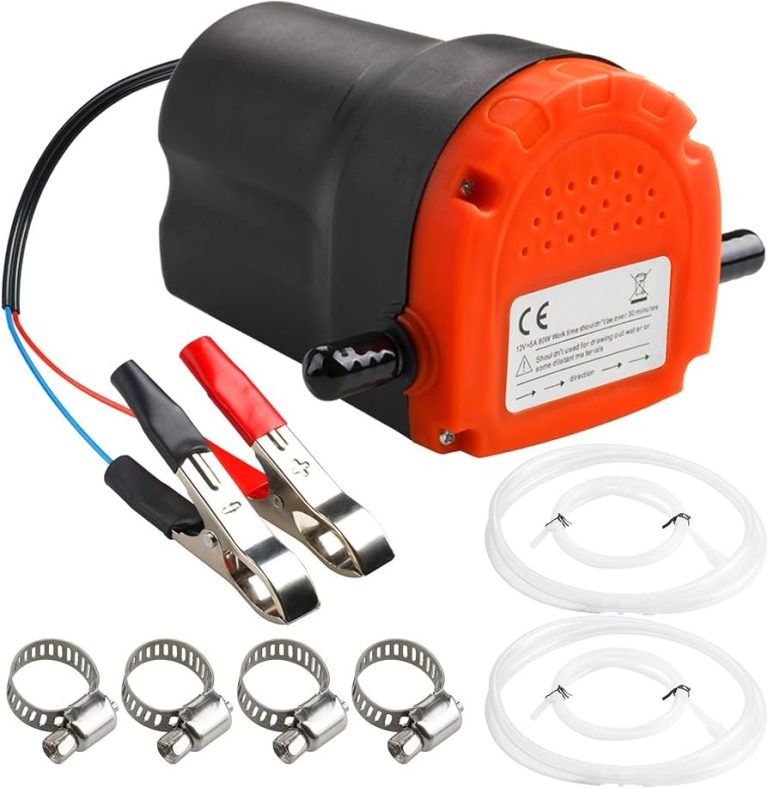Why Does My Ac Smell Like Burning Plastic? Find Out The Causes And Solutions
If you notice a burning plastic smell coming from your AC, it could be a sign of a more serious problem. Ignoring the smell can lead to damage to your system and potential health risks. Some possible causes of this smell include electrical issues, overheating motor, or a blocked air filter. It’s important to address the issue promptly to safeguard your comfort and well-being.
The air conditioning system is the unsung hero of any home, tirelessly working to keep us cool and comfortable. But what happens when that cool breeze is accompanied by a less-than-pleasant odor? Specifically, a burning plastic smell that seems to linger in the air.
It’s not only a nuisance, but it could also be a sign of something more serious lurking within your AC unit. Ignoring this smell can lead to bigger problems down the road, including potential damage to your system and even health risks.
In this article, we’ll delve into the causes behind the infamous burning plastic smell in your AC and provide you with practical solutions to address the issue. Whether you’re a homeowner, renter, or simply someone who relies on an air conditioning system, understanding the root of this problem is essential to safeguarding your comfort and well-being. So, let’s get to the bottom of why your AC smells like burning plastic and find the solutions you need.
I. Common Causes of AC Smelling Like Burning Plastic
A. Overheating of the AC components
When your AC smells like burning plastic, one of the common culprits is the overheating of its components. Several factors can contribute to this issue:
1. Blocked air filters
Air filters are responsible for trapping dust, dirt, and other airborne particles, preventing them from entering your AC system. However, when the filters become clogged and dirty, they restrict the airflow, causing the AC’s components to work harder and heat up. This increased strain can result in a burning plastic smell.
2. Dirty evaporator coils
Evaporator coils play a crucial role in the cooling process by absorbing heat from the air. Over time, these coils can accumulate dirt, dust, and grime, inhibiting their ability to release heat effectively. As a result, the coils can overheat, leading to the burning plastic odor.
3. Malfunctioning compressor
The compressor is the heart of your AC system, responsible for circulating the refrigerant and facilitating heat transfer. If the compressor malfunctions or experiences electrical issues, it can cause excessive heat buildup, resulting in the burning smell.
B. Electrical issues
Faulty electrical components can also be responsible for the burning plastic smell in your AC. The following issues can lead to electrical-related odors:
1. Melting or burning of electrical wiring
Over time, the insulation around the electrical wiring inside your AC unit can deteriorate or become damaged. When this happens, the exposed wires may heat up, melt, or even catch fire, producing a distinct burning plastic smell.
2. Faulty capacitors or relays
Capacitors and relays are electrical components responsible for regulating and controlling the flow of electricity within your AC system. If these components become faulty, they may overheat or malfunction, resulting in the burning odor.
3. Short circuits or electrical arcing
A short circuit occurs when there is an unintended connection between two electrical circuits. This can happen due to damaged wiring, loose connections, or faulty components. When a short circuit or electrical arcing occurs, it can generate heat and emit a burning smell.
C. Accumulation of debris or foreign objects
The presence of debris or foreign objects within your AC system can lead to a burning plastic smell. Some possible causes include:
1. Plastic bags or other items stuck in the AC unit
Outdoor AC units are exposed to various elements, including wind-blown debris. Plastic bags or other items may get stuck in the unit, coming into contact with the hot components and melting, resulting in the burning smell.
2. Build-up of dust, dirt, or pet hair on components
Over time, dust, dirt, and pet hair can accumulate on the AC’s components, especially in the outdoor unit. When these contaminants come into contact with the hot surfaces, they can burn and produce the characteristic burning plastic odor.
3. Nesting of rodents or insects
Rodents and insects seeking shelter may find their way into your AC unit and build nests within it. These nests, often made of materials like plastic or insulation, can be exposed to the heat of the AC, leading to a burning plastic smell.
D. Aging or damaged parts
As your AC system ages, its components may deteriorate or become damaged, leading to the burning plastic odor. Some potential causes include:
1. Worn-out fan motor or blades
The fan motor and blades are responsible for circulating air through the AC system. Over time, these components can wear out or become damaged, causing them to overheat and emit the burning smell.
2. Deteriorated insulation on wires
Insulation around electrical wires helps protect against heat and prevents electrical issues. However, if the insulation becomes deteriorated or damaged, it can lead to overheating and produce the burning plastic odor.
3. Cracked or damaged AC unit housing
The housing or casing of your AC unit provides protection and insulation for its internal components. If this housing becomes cracked or damaged, it can expose the components to external elements, leading to overheating and the accompanying smell.
II. Effects of AC Smelling Like Burning Plastic
A. Potential health hazards
A burning plastic smell from your AC can have adverse effects on your health. Breathing in toxic fumes can cause the following health issues:
1. Inhalation of toxic fumes
Burning plastic releases harmful fumes, including volatile organic compounds (VOCs) and other toxic chemicals. Inhaling these fumes can irritate the respiratory system and lead to various health problems.
2. Irritation of respiratory system
The chemicals released from burning plastic can irritate the nose, throat, and lungs, causing respiratory discomfort, coughing, and wheezing.
3. Allergic reactions
For individuals with existing allergies or sensitivities, exposure to the fumes from burning plastic can trigger allergic reactions such as nasal congestion, sneezing, and skin irritation.
B. Fire hazards
A burning plastic smell from your AC indicates potential fire hazards. Ignoring this smell could lead to the following risks:
1. Increased risk of electrical fires
Electrical issues, such as melting or burning wiring, can increase the risk of electrical fires. Ignoring the burning plastic smell can lead to further damage and potentially endanger your safety.
2. Melting or burning of surrounding materials
If the burning smell is coming from the AC unit itself, the heat generated can cause nearby objects to melt or burn. This can include insulation, plastic components, or any flammable materials in close proximity to the unit.
3. Damage to property
A fire resulting from a neglected burning plastic smell can cause significant damage to your property, including structural damage and loss of belongings.
III. Troubleshooting Steps to Identify the Cause
A. Initial observations and safety precautions
When you notice a burning plastic smell from your AC, take the following steps:
1. Turn off the AC unit
As a safety precaution, turn off your AC unit to prevent further overheating or potential electrical hazards.
2. Identify the source of the smell
Try to locate the source of the burning smell. Is it coming from the indoor unit or the outdoor unit?
3. Open windows for ventilation
To mitigate any potential health risks, open windows to ensure proper ventilation and fresh air circulation in the room.
B. Visual inspection and cleaning
Perform a thorough visual inspection of your AC system and clean any visible components:
1. Check air filters and replace if necessary
Inspect the air filters and replace them if they are dirty or clogged. This will ensure proper airflow and prevent overheating.
2. Inspect evaporator coils for dirt or debris
Carefully examine the evaporator coils for any dirt, dust, or debris. Use a soft brush or vacuum cleaner to clean them if necessary.
3. Remove any visible foreign objects
If you notice any plastic bags, leaves, or other foreign objects stuck in the AC unit, carefully remove them to eliminate potential sources of the burning smell.
C. Electrical component assessment
Inspect the electrical components of your AC system for any signs of damage or malfunction:
1. Inspect wiring for signs of melting or burning
Carefully examine the wiring inside the unit for any signs of melting, burning, or exposed wires. If you notice any damage, it’s essential to contact a professional for further inspection and repair.
2. Check capacitors and relays for damage
Inspect the capacitors and relays for any visible damage, such as bulging, leaking, or burnt marks. Faulty capacitors and relays should be replaced by a qualified technician.
3. Examine circuit breakers and fuses
Check the circuit breakers and fuses connected to your AC system to ensure they are not tripped or blown. If you encounter any issues, consult a professional electrician.
D. Professional evaluation and repair
If the burning plastic smell persists or you are unable to identify the cause, it is recommended to seek the assistance of a professional HVAC technician. They can conduct a comprehensive evaluation of your AC system and perform any necessary repairs or replacements.
IV. Preventive Measures to Avoid AC Smelling Like Burning Plastic
A. Regular maintenance
Taking proactive measures to maintain your AC system can help prevent the occurrence of a burning plastic smell:
1. Clean or replace air filters periodically
Regularly clean or replace your AC’s air filters according to the manufacturer’s instructions. This will ensure proper airflow and prevent overheating.
2. Schedule professional HVAC maintenance
Arrange for regular maintenance visits from a professional HVAC technician. They can inspect, clean, and tune up your AC system, reducing the likelihood of issues that could lead to burning plastic smells.
3. Keep the AC unit and surrounding area clean
Maintain a clean environment around your AC unit. Regularly remove any debris, leaves, or other potential obstructions that could impede proper airflow and cause overheating.
B. Proper use and caution
To ensure the optimal performance and safety of your AC system, follow these guidelines:
1. Avoid blocking air vents or obstructing airflow
Ensure that air vents are not blocked by furniture, curtains, or other objects. Obstructed airflow can lead to overheating and the associated burning plastic odor.
2. Use appropriate electrical connections
When installing or modifying electrical connections for your AC system, ensure that they are in compliance with local building codes and regulations. Improper electrical connections can lead to electrical issues and the burning smell.
3. Be mindful of potential hazards and signs of malfunction
Pay attention to any unusual smells, sounds, or behaviors exhibited by your AC system. If you notice anything out of the ordinary, address the issue promptly to prevent further damage or potential safety hazards.
C. Awareness and immediate action
Stay vigilant and take immediate action if you encounter a burning plastic smell from your AC:
1. Pay attention to any unusual smells
Regularly check for any unusual odors emanating from your AC system. Identifying and addressing potential issues early can prevent further damage.
2. Monitor the AC unit’s performance
Pay attention to how your AC system is functioning. Note any changes in cooling efficiency, airflow, or the appearance of the burning plastic smell.
3. Promptly address any issues or concerns
If you suspect a problem with your AC system, don’t hesitate to contact a professional HVAC technician. They can provide expert advice, perform repairs, and help maintain the optimal functioning of your AC system.
V. Conclusion
A burning plastic smell from your AC can be a cause for concern, but understanding the common causes and solutions can help you address the issue promptly. Whether it’s due to overheating components, electrical issues, debris accumulation, or aging parts, taking proactive measures and seeking professional assistance when needed can help prevent further damage and ensure your comfort and safety. Remember to prioritize regular maintenance, practice caution, and stay vigilant to detect any signs of malfunction or potential hazards. By doing so, you can enjoy cool, fresh air without the worry of a burning plastic smell.
Fixing Burning Smells On Your Car
Frequently Asked Questions (FAQ)
Why does my AC smell like burning plastic?
Can a dirty air filter cause a burning plastic smell in the AC?
Is a burning plastic smell in the AC dangerous?
How can I prevent a burning plastic smell in my AC?
Should I attempt to fix the AC myself if it smells like burning plastic?
Final Words: Preventing and Resolving a Burning Plastic Smell in Your AC Unit
In conclusion, a burning plastic smell coming from your AC unit can be a sign of various underlying issues. The most common causes include overheating of AC components, electrical issues, accumulation of debris or foreign objects, and aging or damaged parts.
Ignoring the smell can lead to potential health hazards, such as inhalation of toxic fumes, irritation of the respiratory system, and allergic reactions. Additionally, fire hazards can arise, including increased risk of electrical fires, melting or burning of surrounding materials, and damage to property.
To troubleshoot the issue, it is important to turn off the AC unit, identify the source of the smell, and open windows for ventilation. Visual inspection and cleaning can be done to check air filters, evaporator coils, and remove any foreign objects. It is also crucial to assess electrical components for damage or malfunction.
If the smell persists or the cause cannot be identified, it is recommended to seek the assistance of a professional HVAC technician for evaluation and repair. To prevent the AC from smelling like burning plastic, regular maintenance is essential. This includes cleaning or replacing air filters periodically, scheduling professional HVAC maintenance, and keeping the AC unit and surrounding area clean.






